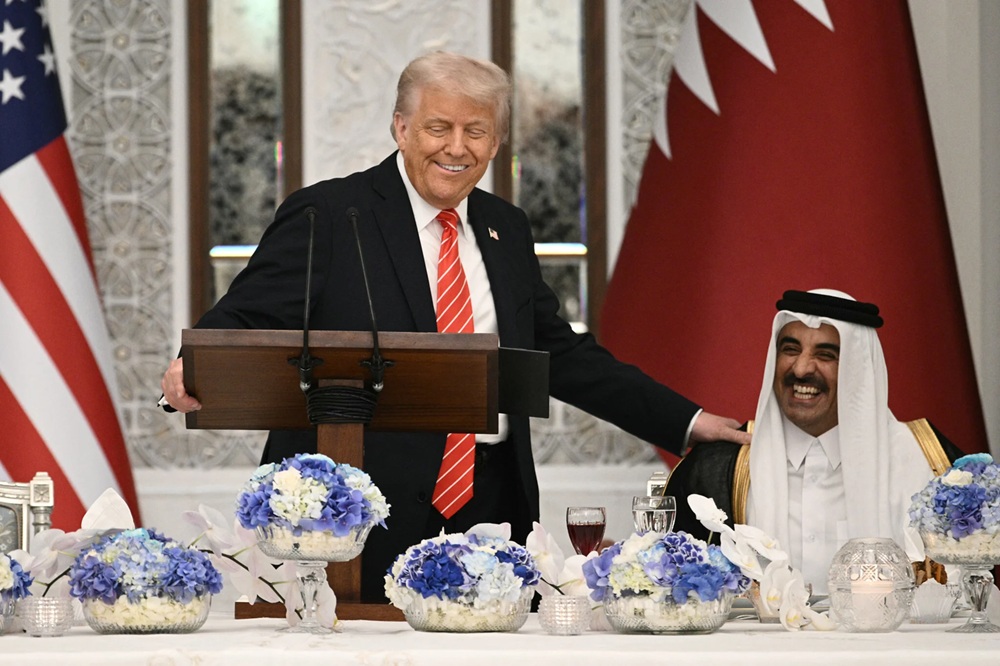President Donald J. Trump’s latest Middle East tour has reignited both global headlines and domestic debate. As the sitting President of the United States, Trump’s diplomatic visits to Qatar, the United Arab Emirates (UAE), and Saudi Arabia weren’t just ceremonial — they were deeply consequential. These state visits resulted in a flurry of mega-deals, including a staggering $96 billion aircraft contract and an eyebrow-raising $400 million private jet “gift” from the Qatari government.
While Trump’s administration is touting the outcomes as historic milestones in U.S.-Gulf relations, critics argue that the President’s blending of statecraft with personal and business-like dealings may represent one of the most ethically fraught moments in modern U.S. foreign policy.
The Deals: Big Money, Bigger Questions
According to the White House, the president’s Gulf tour secured more than $1.2 trillion in economic exchange agreements, trade commitments, and cross-border investments. Among the most publicized were:
A $96 billion Boeing aircraft deal with Qatar Airways
A $2 billion UAE investment in a Trump-linked cryptocurrency initiative
A custom Boeing 747-8, allegedly gifted to the President by Qatar — valued at approximately $400 million
While administration officials describe these agreements as wins for American workers and proof of U.S. economic leadership, legal and ethical watchdogs are raising alarm bells.
Emoluments Clause in the Crosshairs
Central to the controversy is the U.S. Constitution’s Foreign Emoluments Clause, which prohibits federal officials, including the President, from accepting gifts or payments from foreign governments without Congressional approval.
Many legal scholars are calling the Qatari aircraft gift a potential violation. “It’s unprecedented,” said Richard Painter, former White House ethics lawyer. “No sitting U.S. President should be accepting multimillion-dollar gifts from foreign governments — especially those with strategic interests in U.S. military and foreign aid policy.”
The Trump administration insists that the aircraft will be used for diplomatic purposes, not personal luxury — but transparency around its funding, ownership, and operational use remains vague.
Geopolitical Shifts and Strategic Favoritism
The mega-deals also raise concerns about U.S. foreign policy objectivity. Could nations like Qatar and the UAE now enjoy preferential treatment in trade, security, and diplomatic negotiations? And what message does this send to adversaries — and allies — about how influence in Washington is earned?
Trump has long expressed admiration for Gulf monarchies and their business-minded leadership styles. During this latest tour, he emphasized “mutual prosperity through strength and dealmaking.” But critics argue that this language masks a worrying erosion of ethical boundaries and democratic accountability.
Supporters Praise Strategic Gains
On the other hand, Trump’s supporters — including many in the business and defense communities — argue that the Gulf tour was a masterstroke. They view it as a shrewd move to reassert U.S. dominance in a region increasingly courted by China and Russia.
They also argue that under Trump’s leadership, America is securing deals and diplomatic inroads that other presidents failed to accomplish — not through war, but through economic alliances.
A Diplomatic Turning Point or a Conflict of Interest?
As President Trump prepares for more high-profile summits later this year, the line between diplomacy and personal interest remains under intense scrutiny. His actions in the Gulf are not those of a retired leader brokering influence — they are those of an active, sitting president wielding the full power of the executive office.
And that makes the stakes far more serious.
Whether these deals result in lasting economic and geopolitical gains — or in long-term damage to the credibility of U.S. governance — will be judged not just by voters, but by history.
